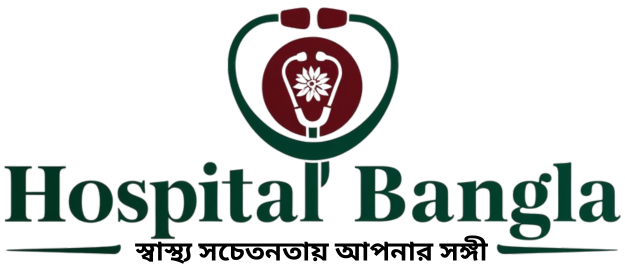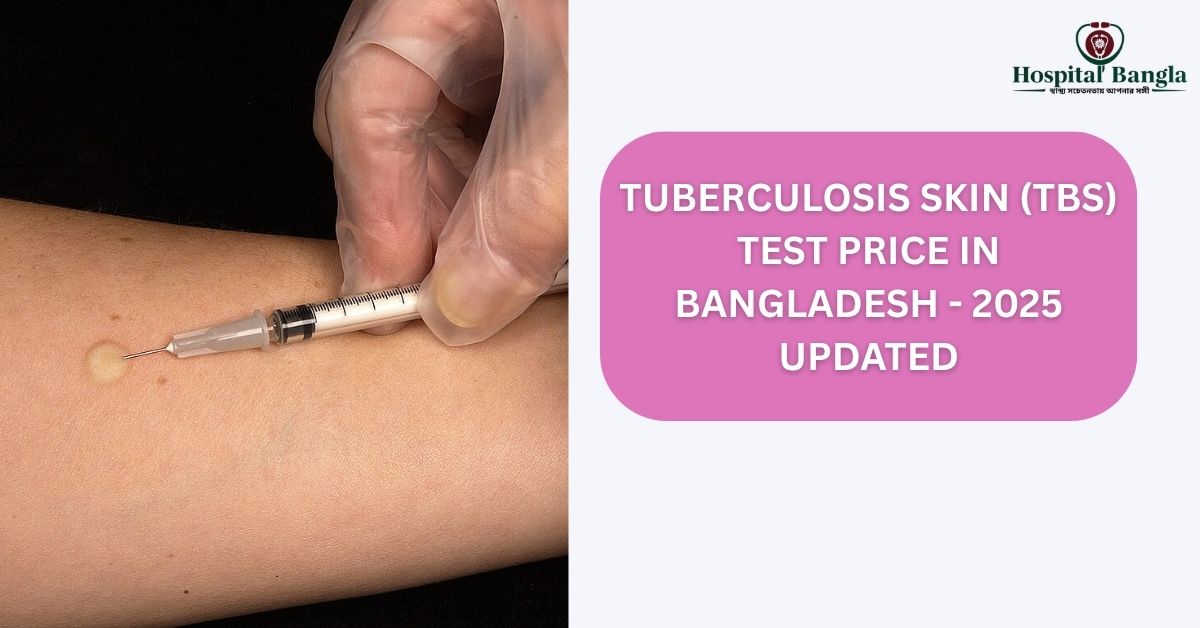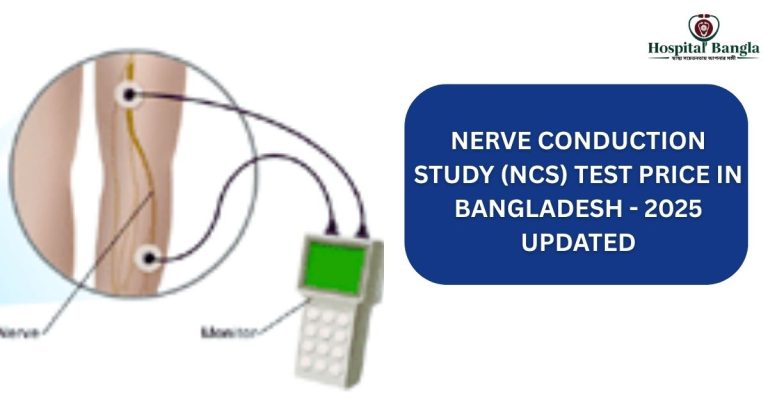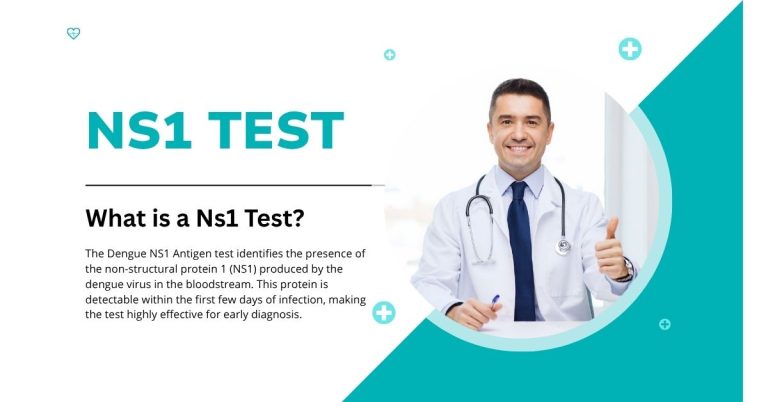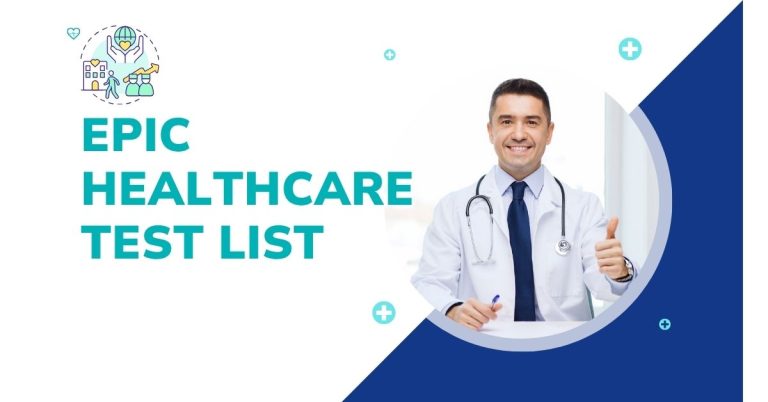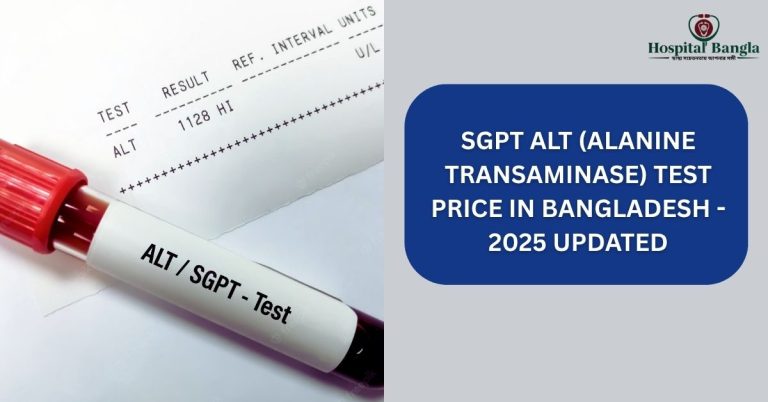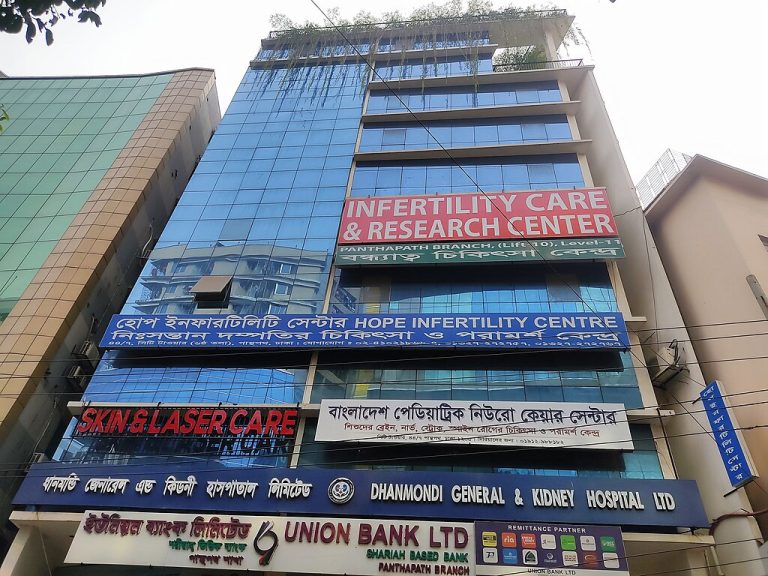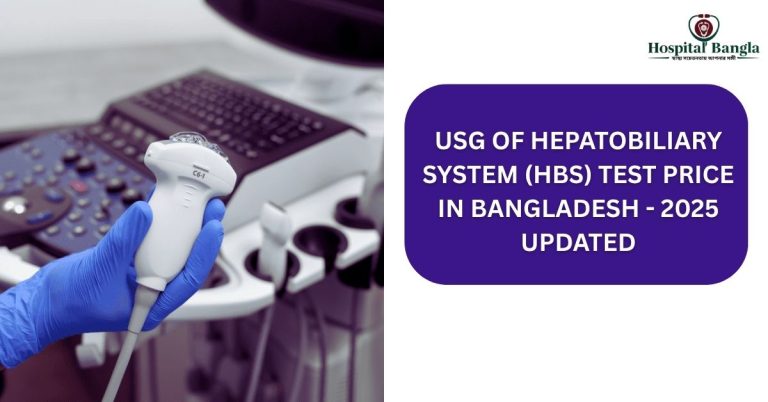TBS Test Price in Bangladesh – 2025 Updated
Tuberculosis (TB) remains a significant public health challenge in Bangladesh, making early detection through TB testing critical for effective treatment and prevention. A TB test, or tuberculosis test, is a medical procedure designed to detect Mycobacterium tuberculosis, the bacteria responsible for TB, which primarily affects the lungs but can also impact other organs. Testing is essential for individuals experiencing symptoms like persistent cough, fever, night sweats, or unexplained weight loss, or those who have been in close contact with someone diagnosed with TB. High-risk groups, such as healthcare workers, people with HIV, or those in areas with high TB prevalence, are also recommended to undergo testing.
In Bangladesh, TB tests are widely accessible through both government and private healthcare facilities. Thanks to the National Tuberculosis Control Programme (NTP), government hospitals offer these tests free of charge, ensuring affordability for all. In contrast, private hospitals and diagnostic centers charge varying fees depending on the test type and facility, with prices typically ranging from BDT 2,500 to 33,600 in 2025. This article explores the TB Test Price in Bangladesh, providing a detailed guide to help you make informed healthcare decisions.
What is a TB test?
A TB test is a diagnostic tool used to identify infection with Mycobacterium tuberculosis. These tests are crucial for diagnosing both latent TB infection (LTBI), where the bacteria are present but inactive, and active TB disease, where the bacteria cause symptoms and can spread. Several types of TB tests are available, each with specific purposes:
- Tuberculin Skin Test (TST): Also known as the Mantoux test, this involves injecting a small amount of tuberculin under the skin of the forearm. After 48–72 hours, a healthcare professional checks for a raised bump (induration), indicating possible TB infection. It’s widely used due to its simplicity but may show false positives in individuals vaccinated with BCG.
- Interferon-Gamma Release Assays (IGRAs): These blood tests, such as QuantiFERON-TB Gold Plus and T-SPOT.TB, measure the immune system’s response to TB antigens. They are more specific than TST, especially for BCG-vaccinated individuals, and require only one visit.
- Chest X-ray: This imaging test detects lung abnormalities suggestive of TB, such as cavities or infiltrates, and is often used alongside other tests to confirm active TB.
- Sputum Tests: These include smear microscopy, culture, and nucleic acid amplification tests (NAATs) like GeneXpert. They detect TB bacteria in sputum samples and are critical for diagnosing active pulmonary TB.
The clinical significance of TB tests lies in their ability to facilitate early diagnosis, enabling timely treatment to prevent disease progression and transmission. These tests are particularly vital in Bangladesh, where TB is a leading infectious disease, with over 213,7992 sputum samples tested in 2018 alone, according to the National Tuberculosis Control Programme.
When is a TBs Test Recommended?
TB testing is recommended in specific scenarios to ensure timely diagnosis and treatment. Here are the key situations:
- Symptoms of TB: Persistent cough lasting over 2–3 weeks, fever, night sweats, weight loss, fatigue, or coughing up blood warrant immediate testing.
- Exposure to TB: If you’ve been in close contact with someone diagnosed with active TB, testing is advised to check for infection.
- High-Risk Groups: Testing is recommended for:
- Individuals with weakened immune systems (e.g., HIV/AIDS patients).
- Healthcare workers or those in high-risk settings like hospitals or shelters.
- People from or traveling to countries with high TB prevalence, including Bangladesh.
- Residents or employees of congregate settings (e.g., prisons, nursing homes).
- Children under 5 exposed to high-risk adults.
- Routine Screening: Required for certain groups, such as immigrants applying for visas to countries like the UK or before starting immunosuppressive therapies.
Doctors use TB test results to distinguish between latent TB infection (LTBI), where the bacteria are dormant and non-contagious, and active TB disease, which is symptomatic and transmissible. Positive results prompt further evaluation, such as chest X-rays or sputum tests, to confirm the diagnosis. TB tests are used for screening high-risk populations, monitoring treatment progress, and diagnosing both latent and active TB, as outlined by the CDC.
TBs Test Preparation
Preparing for a TB test is generally straightforward, with minimal requirements:
- Tuberculin Skin Test (TST): No fasting is needed. A small amount of tuberculin is injected under the skin, and you must return after 48–72 hours for the result to be read. Inform your healthcare provider about immunosuppressive medications (e.g., corticosteroids), as they may affect the immune response, potentially leading to false negatives.
- IGRA Blood Test: No fasting is required. A blood sample is drawn in a single visit, and results are typically available within 24–48 hours. Disclose any medications that suppress the immune system to your doctor.
- Sputum Tests: You may need to provide multiple sputum samples, often collected in the morning. Follow specific instructions for proper collection, such as rinsing your mouth before coughing deeply to produce sputum.
- Chest X-ray: No specific preparation is needed, but you should remove jewelry and wear loose, cotton clothing, as metallic items can interfere with imaging.
The sample collection process varies by test type but is typically quick and performed at a healthcare facility. TST requires two visits, while IGRA and sputum tests usually involve one. Sputum culture results may take weeks, whereas NAATs like GeneXpert provide results in hours.
TB Test Price List in Government Hospitals in Bangladesh
In Bangladesh, the National Tuberculosis Control Programme (NTP) ensures that TB tests, including smear microscopy, GeneXpert, and culture, are provided free of charge in government hospitals. Below is a table of major government hospitals offering TB testing in 2025:
| Hospital Name | Location | TB Test Price (BDT) | Contact Number |
|---|---|---|---|
| Dhaka Medical College Hospital | Dhaka | 0 | +8802223013000 |
| Chittagong Medical College Hospital | Chittagong | 0 | +880312520000 |
| Mymensingh Medical College Hospital | Mymensingh | 0 | +8809167600 |
| Rajshahi Medical College Hospital | Rajshahi | 0 | +880721777300 |
| Sylhet MAG Osmani Medical College Hospital | Sylhet | 0 | +880821722000 |
| Shaheed Suhrawardy Medical College Hospital | Dhaka | 0 | +8802223361111 |
| 250 Bedded TB Hospital | Shyamoli, Dhaka | 0 | +8801969910200 |
Note: Prices are based on NTP guidelines ensuring free TB testing. Contact hospitals to confirm availability, as some facilities may have specific TB clinics.
TB Test Price List in Private Hospitals in Bangladesh
Private hospitals and diagnostic centers in Bangladesh offer TB tests at varying prices, depending on the test type and facility. Below is a table of private facilities with their TB test prices for 2025, based on available data:
| Hospital/Diagnostic Center | Location | TB Test Price (BDT) | Contact Number |
|---|---|---|---|
| Thyrocare Bangladesh Limited | Dhaka | IGRA/QuantiFERON-TB: 10,000; Anti TB IgM+IgG: 2,500; MTB PCR: 8,050; Mycobacterium Combined Panel: 10,350; TB Whole-Genome Sequencing: 33,600 | +8809666737373 |
| Green Crescent Medical Diagnostic | Dhaka | 3,500 (below 11 years), 5,500 (11+ years) | +8801713066230 |
| IOM Migration Health Assessment Center | Dhaka | 3,660 (below 11 years), 8,540 (11+ years) | +8801713066230 |
| Square Hospitals Ltd | Dhaka | Varies (contact for details) | +8801819473200 |
| United Hospital | Dhaka | Varies (contact for details) | +8801914001234 |
| Apollo Hospitals | Dhaka | Varies (contact for details) | +8801841122333 |
| Ibn Sina Diagnostic & Consultation Center | Dhaka | Varies (contact for details) | +8801841122333 |
| Popular Diagnostic Centre Ltd | Dhaka | Varies (contact for details) | +8809613787801 |
| Healthcare Diagnostics Center Ltd | Dhaka | Varies (contact for details) | +8801841122333 |
| Doctor’s Lab & Hospital (Pvt.) Limited | Satkhira | Varies (contact for details) | +8801711122333 |
Note: Prices for Green Crescent and IOM are for UK visa-related TB tests, which may differ from standard diagnostic tests. Other private hospital prices vary; contact facilities directly for the latest rates. Data sourced from Thyrocare Bangladesh and GOV.UK.
Understanding TB Test Results
Interpreting TB test results is crucial for determining the next steps in diagnosis and treatment:
- Tuberculin Skin Test (TST):
- Negative: No induration or <5 mm, suggesting no TB infection. False negatives may occur in immunocompromised individuals.
- Intermediate: 5–9 mm, interpreted based on risk factors (e.g., recent exposure, medical conditions).
- Positive: ≥10 mm, indicating TB infection. Further tests (e.g., chest X-ray) are needed to confirm latent or active TB.
- IGRA Blood Test:
- Negative: No evidence of TB infection.
- Positive: Indicates TB infection, requiring further evaluation.
- Indeterminate: Invalid result, necessitating a retest.
- Sputum Tests and Chest X-ray:
- Negative: No TB bacteria or lung abnormalities detected.
- Positive: Presence of TB bacteria or lung changes suggestive of active TB.
Factors Affecting Results:
- BCG vaccination can cause false positives in TST but not in IGRA.
- Immunosuppressive conditions (e.g., HIV, chemotherapy) may lead to false negatives.
- Recent TB infection may not be detectable immediately (window period).
When to Consult a Doctor: If your test is positive or you have TB symptoms, consult a healthcare provider immediately for further evaluation, which may include additional tests to distinguish between latent and active TB. Visit CDC TB Testing for more details.
Frequently Asked Questions
How accurate are TB tests?
TB tests are generally reliable, but limitations exist. TST may show false positives in BCG-vaccinated individuals or those exposed to non-tuberculous mycobacteria. IGRAs are more specific but can have false negatives in immunocompromised patients. Sputum tests like GeneXpert are highly accurate for active TB.
How long does it take to get TB test results?
TST results are read after 48–72 hours. IGRA results are typically available within 24–48 hours. Sputum smear microscopy can provide results in hours, while cultures may take 2–8 weeks.
Is TB testing covered by insurance in Bangladesh?
Government hospitals offer free TB testing, so insurance is unnecessary. In private facilities, coverage depends on your insurance policy. Check with your provider for details.
How often should I get tested for TB?
Testing frequency depends on risk. High-risk groups (e.g., healthcare workers, HIV patients) may need annual testing, while others are tested only if symptomatic or exposed.
What is the difference between a TB skin test and a TB blood test?
The TST involves injecting tuberculin and checking for a reaction after 48–72 hours. The IGRA blood test measures immune response to TB antigens in a single visit and is preferred for BCG-vaccinated individuals.
Can I get a TB test if I have been vaccinated with BCG?
Yes, but the TST may show a false positive due to BCG. IGRA tests are recommended for BCG-vaccinated individuals for greater accuracy.
What should I do if my TB test is positive?
A positive result indicates TB infection. Consult a doctor for further tests (e.g., chest X-ray, sputum analysis) to determine if it’s latent or active TB and discuss treatment options.
Conclusion
TB testing is a cornerstone of Bangladesh’s efforts to combat tuberculosis, a major public health issue. With free testing available at government hospitals through the NTP, access to diagnostics is widespread. For those seeking faster results or specialized tests, private facilities offer options, though prices vary significantly, from BDT 2,500 for basic tests to BDT 33,600 for advanced diagnostics. Comparing TB Test Prices in Bangladesh across facilities can help you make cost-effective choices. If you suspect TB or are at risk, consult a healthcare provider promptly to get tested and ensure timely treatment.
